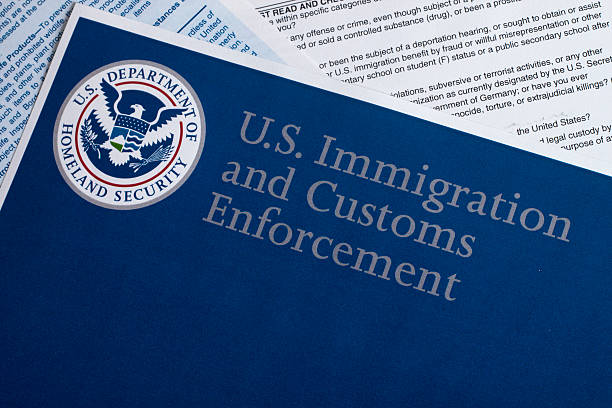Turning a Blind Eye to Undocumented Workers? Employers Risk Felonies for Unwitting Harboring
Last Updated on May 13, 2025
In today’s increasingly complex regulatory environment, employers must be vigilant about maintaining compliance with federal immigration laws, especially when it comes to employment eligibility. One of the lesser understood legal concepts is “harboring” undocumented individuals. Failing to understand this risk can lead to serious legal consequences for businesses and their leadership.
What Is Harboring?
Under federal law, harboring refers to actions that facilitate a person’s continued unlawful presence in the United States. It is more than just providing shelter. Harboring can encompass a broad range of behaviors, including:
- Employing someone known to be unauthorized to work in the U.S.
- Helping someone avoid detection by immigration authorities.
- Providing housing or transportation with knowledge of their unlawful status.
- Failing to take corrective action when aware of an employee’s undocumented status.
Harboring is prohibited under 8 U.S.C. § 1324, and it does not require concealment in a traditional sense. Knowingly enabling someone to remain in the U.S. illegally can be enough to constitute harboring.
What Constitutes “Knowing”?
Knowledge can be actual or constructive. This means:
- If you know an employee is unauthorized, and you continue to employ or assist them, you may be liable.
- If you should have known based on obvious inconsistencies in documents or other red flags, liability can still arise.
Employers are not expected to act as immigration agents, but they are expected to follow due diligence and maintain proper documentation and policies.
Consequences of Harboring
The legal and financial ramifications of harboring can be significant:
- Criminal Penalties: Harboring is a felony offense that can result in up to five years in prison per violation, or more, if aggravated circumstances are involved (e.g., for commercial gain or if it endangers lives).
- Civil Fines: Employers can face substantial fines for knowingly employing unauthorized workers.
- Reputation Risk: Investigations or prosecutions can damage a company’s public image and stakeholder trust.
- Loss of Business Licenses or Government Contracts: In some jurisdictions, non-compliant businesses may lose eligibility for government contracts or licensures.
An example is the Los Fresnos Bakery raid conducted by Homeland Security Investigations. That raid resulted in the apprehension and removal of eight undocumented workers by Immigration and Customs Enforcement and subsequent criminal charges filed against the business owners. If convicted, the owners face up to ten years in federal prison and a fine of up to $250,000.
How Employers Can Stay Compliant
To mitigate the risk of harboring violations, employers should implement and maintain a strong compliance program. Key steps include:
Proper I-9 Completion and Maintenance
Employers are required to complete a Form I-9 for each new employee within three business days of hire. The form verifies identity and authorization to work in the U.S. Key practices include:
- Ensuring documents provided are original, unexpired and appear genuine.
- Avoid accepting documents that are inconsistent or suspicious.
- Reverifying expiring work authorization when applicable.
- Retaining I-9 forms for the proper retention period: three years after the date of hire or one year after employment ends, whichever is later.
Use E-Verify When Appropriate
While not required for all employers, E-Verify provides an additional layer of assurance by confirming employment eligibility through federal databases. Employers using E-Verify must still follow I-9 procedures and ensure consistency across hiring practices.
Train HR and Hiring Managers
Your HR team and those involved in hiring must be trained on I-9 compliance, recognizing document fraud and understanding the legal risks associated with harboring and unauthorized employment.
Conduct Periodic Internal Audits
Internal I-9 audits can help identify and correct deficiencies before they become liabilities. It’s also a good idea to engage a third party — like MyHRConcierge — to conduct a formal review and ensure your processes meet current legal standards.
Document Your Compliance Efforts
Keep records of training, audit results, and compliance measures. In the event of an investigation, documentation can demonstrate good faith efforts and potentially mitigate penalties.
Making I-9 Compliance a Priority with MyHRConcierge and MyHRScreens
Navigating the complexities of immigration compliance requires a proactive approach and the right partners by your side. HRCompli® from MyHRConcierge offers employers of all sizes a valuable resource to help maintain government compliance, with services designed to keep your HR practices aligned with federal and state regulations.
For employment eligibility verification, MyHRScreens simplifies the process with efficient I-9 processing and E-Verify services through our Greenlight platform. Our system makes E-Verify checks fast and reliable, automatically generating required letters for tentative non-confirmations (TNCs) and enabling direct DHS result posting.
With MyHRConcierge and MyHRScreens, you have the tools and support to reduce risk, ensure compliance and stay focused on hiring the right people. contact MyHRScreens today at 866-899-8970 ext. 118, Klewis@myhrscreens.com and MyHRConcierge at 855-538-6947 ext.108, ccooley@myhrconcierge.com. Or, schedule a convenient consultation below:

